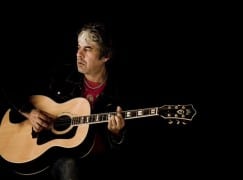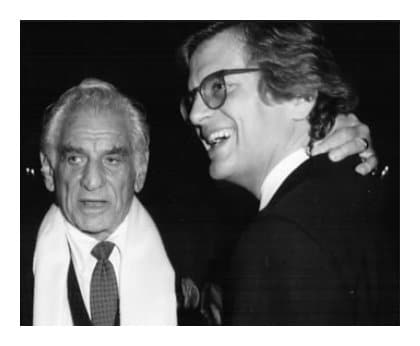‘75% of musicians we asked suffer with their mental health’
mainThe claim is made in a new campaign by Help Musicians UK, formerly the Musicians Benevolent Fund.
It comes with a case-history video.
The naked statistic cannot be true. It must apply only to those musicians who seek financial help.






Perhaps this is related to the drinking problems in orchestras — which is, of course, denied. Especially the brass sections in the UK and Germany have something of a drinking culture. There has been little research on the topic, but here are a couple articles.
http://www.theguardian.com/music/2009/feb/28/classical-music-and-opera-drugs-alcohol
And more recently:
http://www.theguardian.com/music/2014/aug/26/classical-music-alcohol-substance-abuse-addicts-symphony
SD commented on the above article here:
https://slippedisc.com/2014/08/cellist-panic-attacks-made-me-an-alcoholic/
I think there was also a Channel 4 documentary entitled “Addict’s Symphony” but I haven’t seen it.
Thank you Norman and you’re right to question. The figure of 75% referred to musicians who told us in a recent survey that they had experienced performance anxiety sometimes or frequently. We’ve taken the incorrect tweet down but our mistake shouldn’t obscure the fact that the psychological pressures on musicians are significant. In the same survey, almost as many – 67% – told us they had suffered depression or other psychological problems and 68% said they had experienced loneliness or separation from family or friends, in the course of their career. And this does not relate to those who received financial help from us last year. It was an online survey distributed through a wide range of music organisations which elicited over 550 responses representing musicians from all genres. Here’s a link to the survey: http://bit.ly/1GHVhZx
Many thanks.
In Holland and in Russia, the ‘water emptying’ as performed by the horn players in orchestras, is in fact an attempt not of getting rid of condense water but of alcohol, in Holland that is beer, in Russia wodka. At Bayreuth it is a public secret that during rehearsels, an ‘Eisbock’ beer with 31% alcohol from the Oberasbacher Schorschbräu is poured into the Wagner tubas to create the burbling sound needed for Mime and the Nibelungs. Whatever beverage remains afterwards, is wholeheartedly consumed, contributing to the high spirits needed to endure what is happening on the stage.
Are you trying to be funny, or do you really believe this stuff?
Probably very high, and for people seeking financial support.
However, I recommend Kay Redfield Jamison’s book “Touched by fire”. She is the curator of the “Music and the Brain” at the Library of Congress.
Her book is enlightening at so many levels.
It seems that a vast percentage of artists exhibit tendencies that nowadays would be given a fancy name.
The argument is: Are the people with these tendencies naturally attracted by the artistic fields or do the artistic fields end up creating those tendencies in people
The demands upon a creative or recreative artist are monumental. On one hand you need to be very sensitive, but also tough. The two things don’t always fit easily alongside one another. The answer is to get a partner who exhibits the tougher characteristics. For example, Pauline Strauss.
Creative people are really more likely to have problems with mental health. In such cases, it is best to contact Australian Counselling Their extensive directory of psychotherapists and counselors will help you find the right person to meet your needs and concerns
I was deeply moved by the blog post highlighting the mental health struggles that 75% of musicians face. It’s disheartening to see such a high percentage grappling with these challenges. Mental health is a crucial aspect of overall well-being, and it’s essential that we address it openly and supportively.
In addition to the insights shared in this post, I came across valuable information on self-esteem therapy at: https://calmerry.com/self-esteem-therapy/ cause it delves into the importance of nurturing one’s self-esteem, which is especially relevant in the context of the pressures and uncertainties that musicians often face. Exploring therapeutic approaches to enhance self-esteem could be a constructive step for individuals navigating the complex landscape of a career in music.
Let’s continue the conversation on mental health within the music community and work towards fostering an environment that encourages seeking help and prioritizing well-being.